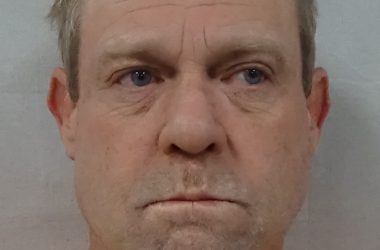WV Press Staff Report
CHARLESTON, W.Va. – The West Virginia Legislature’s Joint Standing Committee on Economic Development and Tourism, on Monday, began its meeting with a presentation regarding West Virginia’s vineyard and winery industry.
Mike Crate with the Rusty Nail Winery in Berkeley County, and Chris Cosco, with Wind Down Winery in Jefferson County, spoke to the committee.
Crate explained that wineries in West Virginia, in order to allow the consumption of more than a sample-portion of wine on their property, are required to serve “preparable food.”
“It’s just me and my wife,” Crate said. “We have enough dealing with the ABC (Alcoholic Beverage Control Administration) and the day-to-day operation.”
Crate noted that the state’s preparable food requirement adds another level of cost to dealing with the health department.

“To do what they can do in Virginia (a state that does not have the same “prepared food” requirement) under one license, we need three or four here in West Virginia,” Cosco added. “The costs are astronomical. Not only do you have the cost of bringing in new things for kitchens – sinks, and things like that – but you’ve got other code liabilities, and other things to consider along those lines. When it comes to health and opening a restaurant as it were, these are just stumbling blocks along the way of a small business like ours.”
“We have a saying in wine – if you want to amass a small fortune in wine, start with a large one,” Cosco said. “And that’s before all of the governmental oversight. Keep that in mind.”
The additional cost is a point which Crate drove home, saying, “Like we talked about, it’s costly. Right now, for me to do what the ABC is wanting me to do, I have to add two new bathrooms and a kitchen. It is going to cost me over $60,000.”
“Everything is at risk – my house is at risk,” Crate noted. “Us small guys, we’re not like Virginians who go out and buy 300 acres to put up a $4 million tasting room. We started out in our basements, and then risked everything to start a winery.”
Without the serving of prepared foods, wineries in West Virginia are only permitted to provide one 4 oz. sample to customers, who must then take their purchased bottles off-site for consumption. Virginia and Maryland both permit on-site consumption of purchased bottles.
“If we can be on an even playing field with the wineries in Maryland and Virginia, you’ll see our wineries grow exponentially,” Crate added.
Next, the committee heard a presentation regarding state-specific impediments preventing West Virginia-based businesses from entering the garbage-collecting market. Buck Dayton, president of First Fruits Excavating – along with his wife, Donna Dayton – delivered the presentation.

“When we bought the business in 2015, we had about 2,400 customers,” Donna Dayton said, explaining the business has grown to service “about” 4,500 local customers currently.
“We’re in Mineral County, and the county has been split into two sections,” Dayton said. “Thank goodness we were able to work through COVID – we were considered essential. We were able to take care of our community and keep our employees working when things were pretty uncertain.”
According to Dayton, until Dec. 2023, the company had not increased its collection-rates since 2003. Currently, the Daytons charge $69.92 per quarter. Two competing companies within the region, both larger, out-of-state-based organizations, charge $98.25 and $97.20 respectively. The Daytons are requesting the PSC (Public Service Commission) approve an 11% rate increase, which would bring their rate to $77.50 per quarter.
“The kicker in all of this is that the other half of Mineral County, the contract there is held by an outside garbage service – not local,” Dayton noted. “Their current rate per quarter is $85.68. So if you drive not even five miles, that outside garbage company is getting more revenue than we are, and they’re not keeping it in the community.”
“We’re local, we support you, and we’re trying to take care of our community, and yet we’re getting hit with a ton of roadblocks that go along with the PSC,” Dayton said. “We’ve had to hire a lawyer to try and get some things done to get those rate increases.”
Buck Dayton, who has been the primary point of contact with both the PSC, as well as the Daytons attorney, spoke next.
“I was born and raised here (West Virginia),” he told committee members. “I love everything about West Virginia.”
“But anyhow,” Dayton continued, “If some things don’t change with the PSC and how billing is allowed, it’s no longer going to be advantageous for us to be a West Virginia company. We can go to Maryland and be unrestricted.”
The Joint Standing Committee on Economic Development and Tourism will meet again during next month’s Interim Legislative Session, scheduled to occur from Sept. 10 through Sept. 12.



